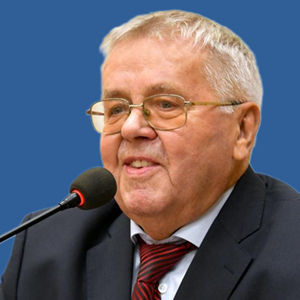ISSN: 2073-2635
eISSN: 2949-270X
eISSN: 2949-270X

Academcian of the Russian Academy of Education, Doctor of Pedagogics, Professor, Lomonosov Moscow State University, Moscow, Russian Federation
Non-state higher education plays an important role in the economic and social development and training of highly qualified personnel in China. With the gradual increase in social recognition of private higher education, the state’s attention to the development of private higher education has also increased, and some financial support policies to support the development of private higher education have been introduced. However, due to differences in economic development, social conditions and the level of development of local non-state higher education between provinces and regions, many problems arose in the implementation of the policy of financial support for non-state higher education. This article examines the main methods of state financial support for non-state universities in China, analyzes the existing problems in the process of forming and implementing state financing policy, puts forward measures and proposals to improve the financial support of non-state higher education.
In the context of the global environmental crisis, the task of greening school education is relevant in any country. The formation of ecological behavior is an integral part of the ecological training of students, which is especially effective at primary school age, when the child, due to his psycho-emotional characteristics, is extremely susceptible to psychological and pedagogical influence, malleable, prone to imitate and actively learns the norms of behavior in the natural environment under conditions variety of environmental practices. The purpose of the article is to identify and compare the specifics of environmental education in primary schools in Russia and China. Responsible environmental behavior is one of the key components of the ecological culture of the population, along with the development of environmental consciousness, environmental thinking and environmental literacy. Meanwhile, the problems of the formation of ecological behavior in elementary school were almost not touched upon by researchers both in Russia and abroad. Environmental behavior, which was discussed only in the early 2000s, is the object of a systematic study of psychology, sociology, and economic sciences, which consider environmental education mainly as a component of the global concept of sustainable development. Western psychology has developed various ways of interpreting environmental behavior, as well as diagnostic tools for identifying environmental attitudes of a person, including in adolescence. Pedagogical science has by now accumulated rich empirical material and practical experience sufficient to analyze the models of formation of ecological behavior of children and adolescents in the future. The theoretical significance of this article lies in identifying the possibility of using the well-known theory of “values — beliefs — norms” as a methodological basis for identifying stereotypes of environmental behavior of younger students. Content analysis of modern scientific and pedagogical sources in Russian and Chinese made it possible to identify key environmental attitudes, moral beliefs, norms and means of shaping the environmental behavior of primary school students in schools in Russia and China. In practical terms, the publication is of interest to primary school teachers, teachers of ecology, teachers- researchers, as well as students and graduate students in pedagogical areas of training.
Background. In modern society, the training of teachers who are able to use the opportunities of the unified educational space of Russia in the educational process is in demand. The development of teacher education in this context requires, first of all, the development of methodological foundations for the training of teaching staff in modern conditions.
Objectives. In the course of the study, the tasks were set to determine the conditions for the training of a teacher who is ready and able to use the potential of the unified educational space of the country in his professional activity, as well as to determine the components of the system of professional training for teaching staff in modern Russia.
Methods. The methodological basis of the research is the conceptual idea about the educational space, the importance of teacher education in the transformation of life in modern society, as well as approaches to understanding the quality of education. The empirical sources of the research are the works of modern authors on multiculturalism, humanism, the systemic nature of the educational space, and its informatization. The research methods include analysis, synthesis, content analysis, interpretation, and generalization.
Results. Conceptual provisions concerning the preparation of teachers for professional activity in the unified educational space of Russia are formulated. It is shown that the effectiveness and quality of training of a modern teacher is ensured at the condition that the educational process is aimed at developing professional competence and a civil-professional position among teaching staff, ensuring the unity of subject and meta-subject competence is realized, and the prospects for the development of society in the training of teachers. The key components of an optimized system of professional training of teaching staff capable of fruitful work in the unified educational space of the country have been identified.
Conclusions. The key factors and conditions for the effective development of the teacher education system in the unified educational space of Russia are identified.


